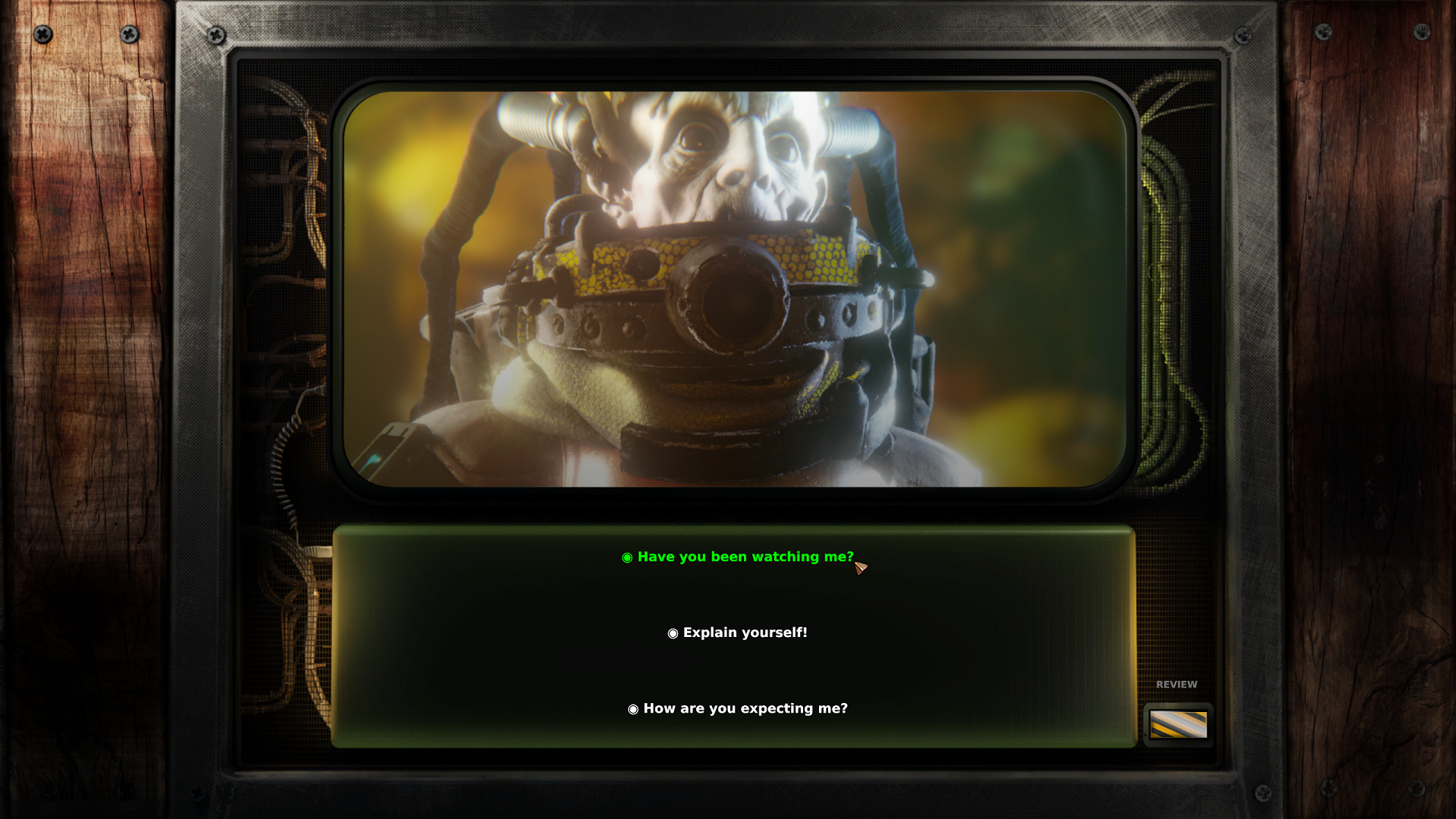THE BROTHERHOOD, a development team of two brothers who brought us the horror adventures of STASIS and CAYNE are back, in a big way. BEAUTIFUL DESOLATION is an extremely apt name. This is a game that delivers a post-apocalypse experience like no other. This is an isometric adventure game where you’ll explore, engage in conversation, and solve puzzles. How it comes together is just masterfully executed, making BEAUTIFUL DESOLATION the best game I’ve played so far this year.

Isometric adventure games done in the 2D style were at their peak in the 90s. THE BROTHERHOOD evokes the era magnificently by wrapping that nostalgia up with a refreshing story and modern conventions like widescreen support. It’s a game that looks like it could be from the 90s, but clearly isn’t. It’s a wonderful blend of old and new, and the game’s narrative and gameplay carry it through the 40-50 hours it takes to complete the game. And even then, it feels over far too soon due to the desire to want to explore and take in more of this vast world.
Taking place in Cape Town, South Africa in the 1970s and 1980s, the introductory cutscene introduces the event that creates a checkpoint in human history going forward. The game wastes little time kicking things off, but does so in a way that it teaches you the concepts without being overt about it. It’s not long before you see the ominous Impossible triangle structure in the sky. From here, you get thrust into the future without any explanation or understanding. It’s now a post-apocalyptic dystopia. As you work to learn about this supposed future, you’ll embark on a journey like no other to discover the means to get back home to your time while doing your best to create a better future for everyone.

Dialogue in BEAUTIFUL DESOLATION is one of the cornerstones in which scenarios will have consequences. There’s an element of blind choices, and it not being totally clear what will change from how you interact with others. The accompanying voice acting offers an accurate South Africa accent that adds to the overall atmosphere. Playing as Mark (or “Markie” as your brother affectionately refers to you as), you’ll spend a lot of time with him and your companions conversing and hearing their personalities come through.
You’ll build out your codex which automatically adds notes, drawings, and other important information to it. You can easily refer to it when you need to solve a puzzle or learn more about something. I never found myself needing to take notes on my own, or doodle on a notepad outside of the game to play it. I almost wish I did, and I suppose I could have, but it really wasn’t needed. The inventory is a drag ‘n’ drop system, when you need to interact with a person or object, just requires you place it to move forward. These systems are simple, but allows you to focus more on enjoying the game. Frustration by friction does not apply here, as those obstacles have been removed for the sake of enjoyment.

Not long into the game, you’ll gain access to a transport ship, called the Buffalo. You can radio the Buffalo to take you to specific areas on a map, or freely explore the area. It needs upgrades over time in order to bring you home, but that’ll take time. You’ll visit every area of the map, to learn more about this new world, or to help others in need. In doing so, you’ll acquire either the funds or the parts to apply the upgrades.
Feeling like some sort of marketing scam, you can turn gold into credits to make purchases in what I call “Gold4Credits”. There’s actual machines where you drop in gold, and get credits in return. The means in which you make money in the game is rather easy, and you can do so with some less than acceptable means, like taking money from a sleeping person as one example. There’s no karma or repercussions, but it can weigh on your actual conscience.

This game is absolutely beautiful, with each environment feeling more unique than the last. The transformed world you find yourself in feels alien, but it’s still Earth, just now how you remember it. From far away, the game looks like a 90s adventure game but in widescreen. Upon further inspection, you’ll find that there’s tons of detail and modern touches that makes this a standout title. The game has a generous zoom, and you’ll often be inspecting every last detail you can, as every new area just begs to be explored.
Mick Gordon worked with THE BROTHERHOOD to compose the soundtrack for BEAUTIFUL DESOLATION, and it’s another fantastic score from Mick. Each track is a wonderful backdrop to what’s on-screen, and has its distinctive markings that make them memorable. Some tracks offer influences of African culture that tie everything together.

BEAUTIFUL DESOLATION offers a weird, and wonderful future of Earth to explore where you can make your mark. The journey is just as exciting and fantastic as the destination. There’s a unique world and game here that’s never been seen before, and THE BROTHERHOOD made sure of that. There’s nothing quite like BEAUTIFUL DESOLATION; it’s an experience you won’t soon forget, and is one of the finest adventure games I’ve ever played.
A pre-release Steam code was provided by the publisher for review purposes
